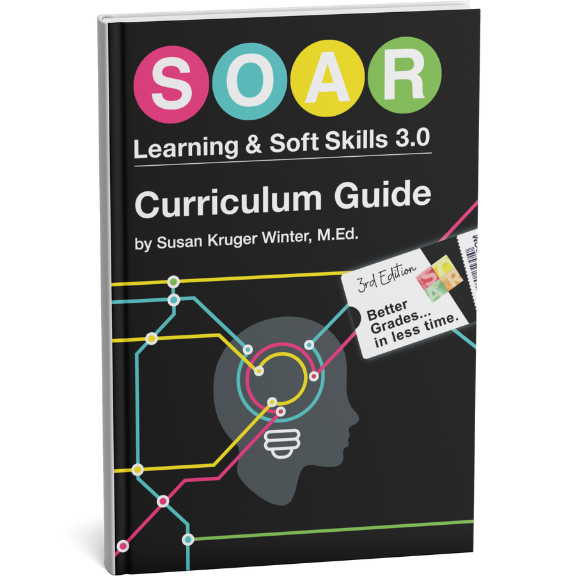Homework Focus:
“Is it Multi-Tasking or Distracting?”
At a recent education conference I attended, there was a lot of buzz about the “multi-tasking” learner. Essentially, educators are recognizing that today’s students are plugged into their iPods®, surfing the internet, and text-messaging their friends all at the same time.
So, there is a new push to educate students in that same “multi-tasking” mode.
While I would love to see mainstream education embrace more forms of media, teaching students several things, with many different forms of media -all at the same time- sets off an alarm for me! Our brains are not physiologically programmed to ACTIVELY learn more than one thing at a time.
Yes, you can walk and chew gum at the same time. However, when adolescents are text-messaging, surfing the internet, and listening to their favorite tunes concurrently, their attention is not focused on three things at once, it is rapidly shifting from one thing to another.
That is okay when their primary objective is entertainment or to communicate with a friend, but it does not work when the objective is (or should be) learning. Unfortunately, a lot of students double their homework time by trying to “multi-task.”
Case in point…
Cassie, an 11th grade student in one of my recent Homework Action Groups, discovered that multi-tasking was not working for her. During our first class, she complained that homework took her 3.5-4 hours every night.
Together, we worked out a goal to reduce her homework time by 45 minutes within one month and 1.5 hours within two months. She reduced her homework time by an hour after only two weeks, mostly because she “unplugged” other distractions and just did homework.
Six weeks later, she was averaging about 1.5 hours of homework each night, largely because she improved her focus while doing homework.
Action Plan
Cassie shared the following tips about how she managed to reduce her homework time:
- “I turned off everything.” Cassie said she originally started doing her homework while watching TV or instant messaging because she wanted to make homework more “fun.” That plan did not work. She dramatically cut her homework time simply by turning the TV and computer off.
- “Try to LEARN while you do your homework.” Cassie says that without the electronic distractions, she was able to think more clearly and learn information from her homework. “After a while, I found it easier to study for tests because I was not learning information the night before a test,” she said. “I had taken the time to learn it while doing my homework.”
- “Take advantage of your time in school.” Cassie was surprised to discover how much time she was not using in school…when teachers have to take attendance, were troubleshooting the DVD/VCR, or when students caused distractions, etc. “Now, I do a LOT of my homework before I even get home,” Cassie says.
In Conclusion
Multi-tasking is good for certain situations, but it does not work for learning. Your brain needs to focus in order to process and learn new information.
When you “unplug” your distractions, you will get your homework done much faster, learn more while doing it, and ultimately increase your grades.
-Susan Kruger
EB 083117
Six Steps
Conquer the Chaos
Get Our Free Guide & Information on...

"*" indicates required fields
Get Our FREE Curriculum Guide!
The SOAR® Curriculum
The most critical learning, organizing, and communication skills needed for school. Learn more here.
Who’s Using SOAR®?
SOAR® Guarantee
Click here to learn more.




